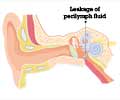Hearing loss is becoming an epidemic in Canada, researchers warn. "People are starting to lose their hearing 20 years earlier than in the past," said Heather Ferguson, president of the Hearing Foundation of Canada in Toronto. "I believe we're on the verge of noise induced hearing loss becoming a public health crisis."
Due to the prevalence of noise in today's society, the number of people with hearing loss is expected to grow faster than the rate of increase of the senior population itself.A Canadian Hearing Society Awareness survey indicated five years ago that 25 per cent of people with hearing loss are under 40, and 70 per cent are under 60.
The average age of those experiencing hearing loss was 51. And 16 per cent of 6 to 19 year olds have early signs of hearing loss at the range most affected by loud sounds. And it's only going to get worse. Victoria McLeod, an audiology manager with ReSound Canada in Toronto, said she is seeing a definite change in the numbers. "Ten years ago most people coming in were in their 70s. Now it's people in their 50s and 60s - some are even in their 30s."
She added that studies have indicated that untreated hearing loss can also lead to a number of long-term side-effects, including depression and accelerated dementia.
The fact is, listening to any sound at 85 decibels or higher for a prolonged period of time can cause permanent damage to hearing. The maximum safe exposure time to 120 decibels is eight seconds. The problem is there is a raft of activities in our everyday lives that exceed those noise levels.
For example, an average conversation takes place at around 60 decibels. Standing on a downtown street corner in rush hour, you're probably exposed to about 85 to 90 decibels. While using an electric hair dryer or pushing a gas lawnmower, you're well into the danger zone at 90-plus decibels. At peak levels, iPods can hit volumes of 120 decibels, which is louder than a chainsaw or jackhammer. Music in dance clubs can peak as high as 150 decibels.
Advertisement
Since avoiding noise is not always an option in this day and age, what can people do to stop the spiraling trend to high frequency hearing loss? It's all pretty easy, said Murray. Plug your ears. If you're working with a skill saw, lawn mower or leaf blower, just go to your local hardware store first and buy a $15 pair of cheap sound-blocking ear protectors, said Murray. "You might just be doing a few cuts, but with hearing loss, the damage is cumulative. Each half hour of extreme noise adds up."
Advertisement
Make sure children are appropriately protected from nearby sounds, too. The effects are cumulative for them, too. Also, don't be afraid to get your hearing checked regularly. There are now retail outlets and kiosks that provide hearing testing services. If you find an infection is affecting your hearing, get to a doctor right away. In some cases, a steroid treatment can fix the problem before hearing loss sets in.
And if you are diagnosed with hearing loss, don't wait years to get hearing aids. Murray said it can take people years after diagnosis to take the plunge. But given the slick, new high-tech hearing devices that are now available – including Bluetooth-enabled headsets that allow you to use cell phones and music players – there are no more excuses for not hearing the world around you properly.
Source-Medindia
GPL/M











